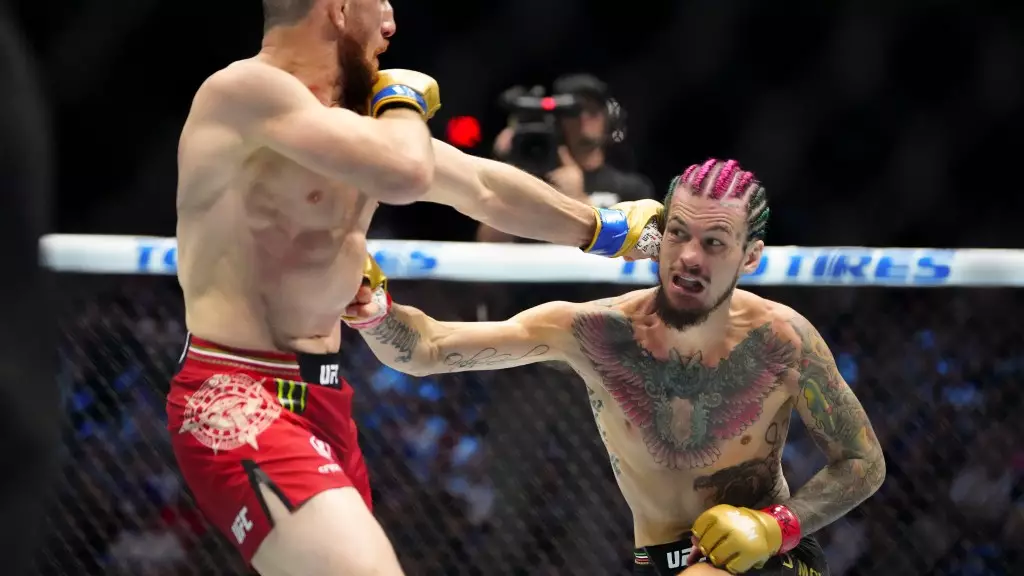The world of mixed martial arts (MMA) often sees champions fall from grace, leading to intense debates about whether they deserve an immediate shot at redemption through a title rematch. Recently, this topic has gained traction in the wake of Sean O’Malley’s loss of the bantamweight title to Merab Dvalishvili at UFC 306. Dvalishvili’s unanimous decision victory solidified his place as a top contender, but it left many fans and pundits questioning the fairness of the title rematch dynamics. Chael Sonnen, an outspoken former fighter and current analyst, has emerged as a vocal proponent of giving O’Malley a second chance to reclaim his title.
Sonnen presents a reasoned case for why O’Malley deserves an immediate title rematch, contrasting it with the treatment of other champions who have faced similar losses. The crux of Sonnen’s argument lies in the historical precedence established for champions who have lost their belts. He points out that fighters like Conor McGregor and Israel Adesanya, both successful in their respective careers, were afforded rematch opportunities after losing their titles. In this context, Sonnen suggests that O’Malley, having established himself as a notable star, should be given the same respect.
This perspective raises questions about the criteria used to determine who is worthy of a rematch. Should it be solely based on merit, or should marketability and star power also play a significant role? After all, attracting audiences is a vital aspect of the sport, and fighters who can “move the needle” often find themselves in favorable positions.
While many watched Dvalishvili’s victory as decisive, O’Malley himself holds a different view. Upon rewatching the match, Sonnen acknowledges O’Malley’s perspective, highlighting the notion that motivation in combat sports can be fueled by perception and opportunity. Sonnen notes that O’Malley’s sense of loss might stem from his belief that he didn’t receive a fair chance to showcase his skills—an argument that adds a layer of complexity to the narrative surrounding the fight.
Moreover, the bantamweight division is now brimming with contenders like Umar Nurmagomedov and Deiveson Figueiredo, both of whom are eager for a title shot. This scenario complicates O’Malley’s claim as it creates a crowded field vying for the champion’s attention. Nevertheless, Sonnen asserts that the presence of controversy—O’Malley’s belief that he wasn’t decisively defeated—should warrant a closer examination of his case for a rematch.
As MMA continues to evolve, how the UFC chooses to handle title rematches could set important precedents for up-and-coming fighters. O’Malley’s potential rematch with Dvalishvili calls for a thoughtful footballing stance on fairness and recognition within the sport. If fighters who create memorable storylines and demonstrate marketability receive titles shots, it raises the stakes for both talent and personality, pushing fighters to not only improve their skills but also to cultivate their presence in the public eye.
While Dvalishvili may have earned his championship status, O’Malley’s plea for a rematch feels not just personal but pivotal for establishing the future norms around title opportunities. Sonnen’s advocacy serves as a reminder of the delicate balance between performance, perception, and marketability in the ever-competitive landscape of the UFC.

